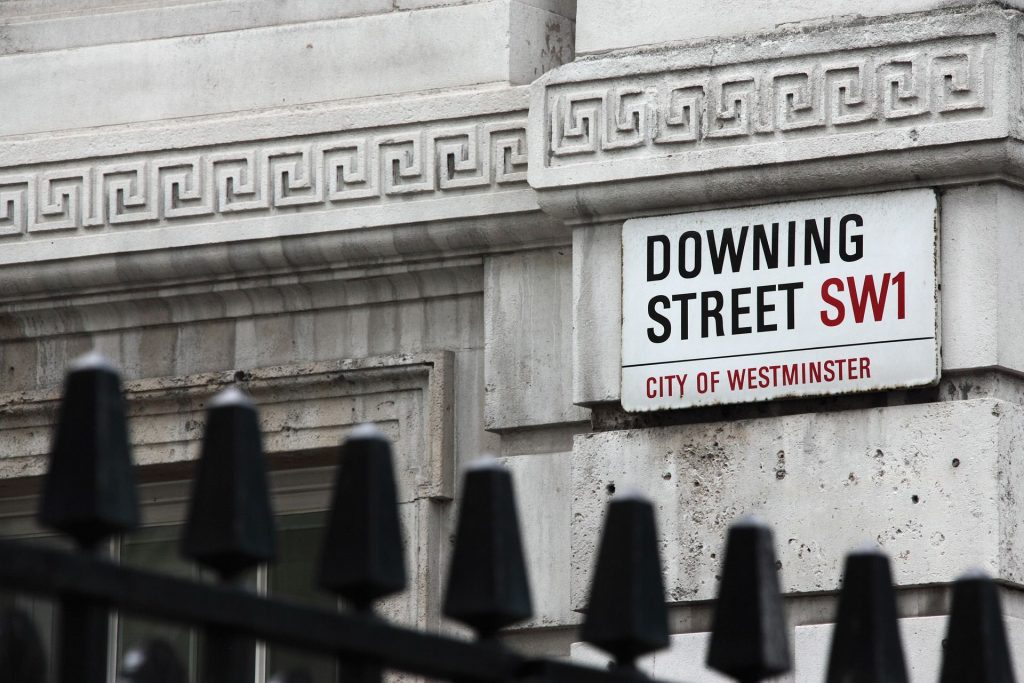At a time when two candidates are vying to be the next Conservative party leader and prime minister, it is perhaps rather appropriate to ask: Is there a ‘right’ person to run the country and an ideal set of skills necessary to fulfil the role of prime minister?
Peter Hennessy described the ideal prime minister as ‘a kind of grotesque composite freak – someone with the dedication to duty of a Peel, the physical energy of a Gladstone, the detachment of a Salisbury, the brains of an Asquith, the balls of a Lloyd George, the word-power of a Churchill, the administrative gifts of an Attlee, the style of a Macmillan, the managerialism of a Heath, and the sleep requirements of a Thatcher.’ More recently, Antony Seldon argued that prime ministers need to possess seven essential skills for the office: persuasion, oratory and storytelling, energy levels, intellectual ability, temperament, ruthlessness, opportunism, and populism.
Each prime minister brings their own personal attributes to the position. The yardstick becomes the previous incumbent and the skills they deployed in office. In a forthcoming special issue of open access articles in the Asian Journal of Comparative Politics 21st century prime ministers are compared between the UK and Japan in terms of party leadership, executive leadership, and personal leadership. In Japan historical context has defined prime ministerial occupants as weak, reactive leaders, constrained by a political system which privileged a strong bureaucracy and (for most of the post-war period) Liberal Democratic Party structures. Prime ministers in Japan were notoriously short-term, the tenures of Junichiro Koizumi and Shinzo Abe seemed to be exceptions to the revolving door premiership. Between the resignation of Koizumi in 2006 and Abe’s re-election in 2012, Japan experienced six prime ministers. Brazilian President Lula da Silva declared in October 2009 that ‘I have a message to … the prime minister of Japan who I don’t know because it’s like that in Japan – you say “good morning” to one prime minister and “good afternoon” to a different one!’
With the next prime minister becoming the 4th incumbent in 6 years, the UK may be unwittingly emulating the Japanese experience. The shocking murder of Abe and the removal from office of Boris Johnson has drawn much international attention to the position in both countries.

Under qualified for the job
Focusing on personal skills the route to the highest office does not ensure that the better qualified (by whatever measure) or most experienced candidate makes it to the top (think perhaps Jeremy Hunt or Ken Clarke in the UK). Equally, those who occupy party leadership positions and present themselves as potential prime ministers may not be the best suited (think perhaps Jeremy Corbyn), but rather the result of party factional battles in Japan or compromise candidates (or those favoured by a small party membership) in the UK.
In Japan, the ability to influence policy has been substantially constrained – largely due to a context that, as Tina Burrett has explained, viewed ‘strong leadership [as] the antithesis of Japanese cultural preferences for consensus and conformity’. In various expert rankings this has placed the Japanese prime minister as one of the weakest and least influential leaders in advanced democracies.
Once in office style and personality can and does impact on the office itself. Afterall it was Johnson’s mode of governing – oblivious to the importance of integrity in office – that saw him crowbarred out of office in the end, drawing comparisons with Silvio Berlusconi. The sheer flexibility of the office of prime minister gives the incumbent a strong potential towards being dominant. Former Cabinet Secretary Gus O’Donnell observed that prime ministers ‘can just decide they’re going to do something and they are able to have that power, even if there is no constitutional backing for it.’ However, the implosion of Johnson’s premiership shows that significant constraints remain in the system, albeit party-related rather than constitutional.
The Japanese office is much less flexible, with bureaucratic strength built into the constitutional design, a reflection of serious concerns about overly strong authority residing with the prime minister and the possibility of dictatorship. Yet party and executive pressures can drive the removal of prime minister’s when they are seen to be underperforming. Abe, in particular struggled to effectively communicate policy decisions during the Covid pandemic.

An impossible job?
But if successive prime ministers have been unable to utilise the resources at their disposal has the job itself become impossible? Seldon argues that incumbents themselves may be responsible for this perception. David Cameron was determined to make operating arrangements in Number 10 more formal, apparently reflecting that he was ‘a fairly structured person’. Harold Wilson wrote of the ‘unrealistic assumption that everything was static’ for any one prime minister. Premierships frequently ‘zig zag’ as successive leaders define themselves against their predecessor. Gordon Brown was keen to distance himself from Blair, and Johnson acted as if the Conservative party came into office in 2019 not 2010, so keen was he to reset the dial on his own terms.
There is as Antony King pointed out ‘variety within the lifetime of a single premiership’, due to deliberate action or ‘changed circumstances’. Assumptions that Johnson was safe in office – sitting on an 80-seat majority – were swiftly revised with his disregard for governing norms. Abe’s two tenures as prime minister show how perceptions of Japanese prime ministers can also shift during tenures or, in Abe’s case, from one tenure to another. Commentators noted the ‘good fortune’ that Abe inherited in terms of context and circumstance in his second term, and that he left Kantei in a better shape too.
Since Tony Blair left office in 2007, four prime ministers have so far occupied Number 10 in a period which included a coalition and minority government. The history of takeover prime misters shows that they often ask for an early mandate from the electorate and tend to have a shorter tenures than non-takeover prime ministers. Though not at the levels of the Japanese revolving door premiership, the UK premiership has certainly become a more unstable political office.
Whoever becomes the next UK prime minister is likely to want to present an individualised approach to governing, albeit with a substantial in tray of problems to deal with. Yet being prime minister remains a collective endeavour, having to work with and through the legislature, party, executive not to mention the media and wider electorate. Leading a party that has been in government since 2010, the political landscape may determine that any prime ministerial honeymoon period is rather short this time.
Associate Professor of Politics, University of Lincoln
This blog post was first published on the Political Studies Association site on 18 August 2022 https://www.psa.ac.uk/psa/news/there-%E2%80%98right%E2%80%99-person-be-prime-minister
You must be logged in to post a comment.